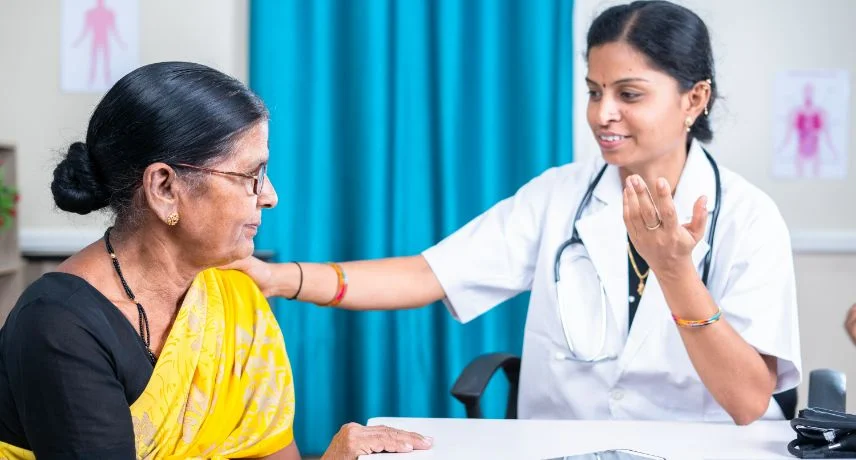Dr Teesta Banerjee
6th May,2023

Common health problems in elderly women and how to manage them right: useful insights be one of the best hospitals in kolkata.
Ageing is a natural process that can lead to a range of health problems, especially in elderly women. These health issues can significantly impact the quality of life for older women, making it important to understand and address them effectively. Woman health problems include cardiovascular disease, osteoporosis, cancer, depression, and arthritis, among others. Understanding these health issues and providing appropriate care and support can help to improve the health outcomes and quality of life for elderly women. In the article, we will explore some of the common women health problems that elderly women face:
Cardiovascular diseases are a significant concern for elderly women. As women age, they are likely to develop cardiovascular diseases and related health problems- such as diabetes, hypertension and obesity. Cardiovascular diseases are also a common cause of stroke in older women. Some common cardiovascular diseases affecting older women include:
Tips to Manage: Heart problems in older women can be managed with an improved lifestyle and constant monitoring for any unusual conditions. It is important to get regular check ups and take the prescribed medication regularly.
Diabetes is a chronic condition that impacts the body's way of processing blood sugar (glucose). Diabetes can cause several problems in older women including:
Tips to manage: Managing diabetes includes monitoring of blood sugar levels, healthy diet, regular exercise, and medication. Additionally, necessary check ups need to be done to ensure proper functioning of the kidneys, eyes, and the heart. Older women need to be aware of the symptoms in order to detect symptoms early and get themselves diagnosed at the nearest medical facility. This can help avoid unnecessary complications.
As women age, they are more likely to experience various orthopaedic issues, particularly related to their bones and joints. These problems can be particularly troublesome for older women, causing significant pain and limiting mobility. Some common orthopaedic problems include:
Tips to manage: It is essential for senior women to prioritise bone health maintenance. This involves eating food rich in vitamin D or taking supplements, regular exercise, avoiding smoking and alcohol consumption. Elderly women need to get regular check- ups as prescribed by their physician. It is also important to consult the doctor in cases of emergencies such as falls and fractures.
Cancer is a group of aberrant cells of the body that can grow uncontrollably, leading to fatal consequences if they go undiagnosed or untreated. Elder women are at an increased risk of developing cancer. Some common types of cancer in women include:
Tips to manage: Elderly women need to be aware and watch out for unusual changes in their body. They should undergo regular medical check-ups and cancer screening tests, as recommended by their healthcare provider. Awareness of the symptoms of cancer helps in quick diagnosis and early treatment.
It is a neurological disorder that impacts memory, thinking and behaviour. Elderly women are at a higher chance of developing Alzheimer's disease than older men. Alzheimer's disease is caused by several factors including age, genetics, hormonal changes and lifestyle factors. Some of the symptoms Alzheimer's disease in elderly women include:
Tips to manage: Currently Alzheimer's disease has no cure but several treatment options are available to manage the symptom. Treatment options include medications to improve memory and cognitive function. Doctors also prescribe therapies to manage behavioural and psychological symptoms.